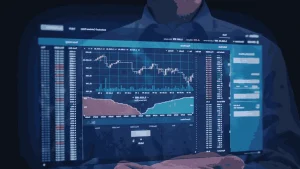Trading Education Introduction
South Africa’s vibrant forex trading community often grapples with a fundamental question about the merit of formal trading education. Within the bustling financial markets of Johannesburg and Cape Town, aspiring traders face unique challenges in their learning journey. The South African Reserve Bank’s regulatory framework and the volatile nature of the ZAR create distinct trading conditions that require specialized knowledge. Understanding these local nuances while mastering global trading principles presents both opportunities and challenges for South African traders.

The Reality of FX Education in South African Markets
The South African forex landscape presents unique characteristics shaped by local economic factors and global market influences. Trading within the context of an emerging market economy requires specific skills and understanding. The relationship between commodity prices, particularly gold and platinum, significantly impacts the ZAR’s movement patterns. Local traders must navigate these complexities while developing their trading expertise. Many South Africans approach forex education with high expectations but often become discouraged when facing market realities. The journey from education to profitable trading requires understanding both universal trading principles and local market dynamics.
Critical Educational Mistakes in the South African Context
Common Training Pitfalls:
- Over-reliance on international trading strategies
- Ignoring local market hours and dynamics
- Misunderstanding ZAR correlation patterns
- Poor adaptation to African market conditions
- Neglecting regional economic indicators
- Following outdated trading methodologies
- Inappropriate risk management for local conditions
Knowledge Application Gaps:
• Limited understanding of local regulations
• Poor grasp of African economic influences
• Inadequate attention to commodity correlations
• Weak understanding of time zone impacts
• Insufficient local market analysis
• Poor adaptation of global strategies
• Lack of regional market perspective
| Education Level | Market Focus | Time Investment | Cost Effectiveness |
| Basic Training | Local Only | 3-6 months | High |
| Intermediate | Regional | 6-9 months | Medium |
| Advanced | Global | 9-12 months | Variable |
| Professional | Comprehensive | 12+ months | High |
Optimized Learning Approach for South African Traders
Essential Market Knowledge:
- South African monetary policy impacts
- ZAR pair characteristics
- Regional market correlations
- Local trading hours optimization
- African economic indicators
- Commodity price influences
- Cross-border trading regulations

| Phase | Key Focus | Duration | Expected Outcomes |
| Foundation | Market Basics | 8 weeks | Market Understanding |
| Development | Technical Skills | 12 weeks | Strategy Building |
| Application | Live Practice | 16 weeks | Performance Testing |
| Mastery | Portfolio Management | 20 weeks | Consistent Results |
Strategic Implementation Guidelines
Local Market Mastery:
- Understanding JSE trading patterns
- South African economic calendar analysis
- Regional political impact assessment
- Local broker selection criteria
- Domestic market sentiment evaluation
- ZAR volatility management
- Cross-border transaction considerations
Risk Management for South African Traders:
• Currency volatility considerations
• Local regulatory compliance
• Capital control awareness
• Position sizing for ZAR pairs
• Cross-border risk assessment
• Market liquidity evaluation
• Exchange rate risk management
FAQ
How does South African regulation affect FX trading?
FSCA regulations require trading through authorized brokers and adherence to specific capital control requirements.
What minimum capital is recommended for South African traders?
While R5,000 is the minimum, starting with R15,000-R20,000 provides better risk management options.
Can I trade forex full-time in South Africa?
Yes, but it requires proper licensing, tax compliance, and typically 12-18 months of consistent profitable trading.
How do local market hours affect trading strategies?
South African traders should focus on ZAR pairs during local market hours (9:00-17:00 SAST) and major pairs during overlapping sessions.
What unique challenges do South African traders face?
Key challenges include currency volatility, capital controls, and the need to understand both local and international market dynamics.













